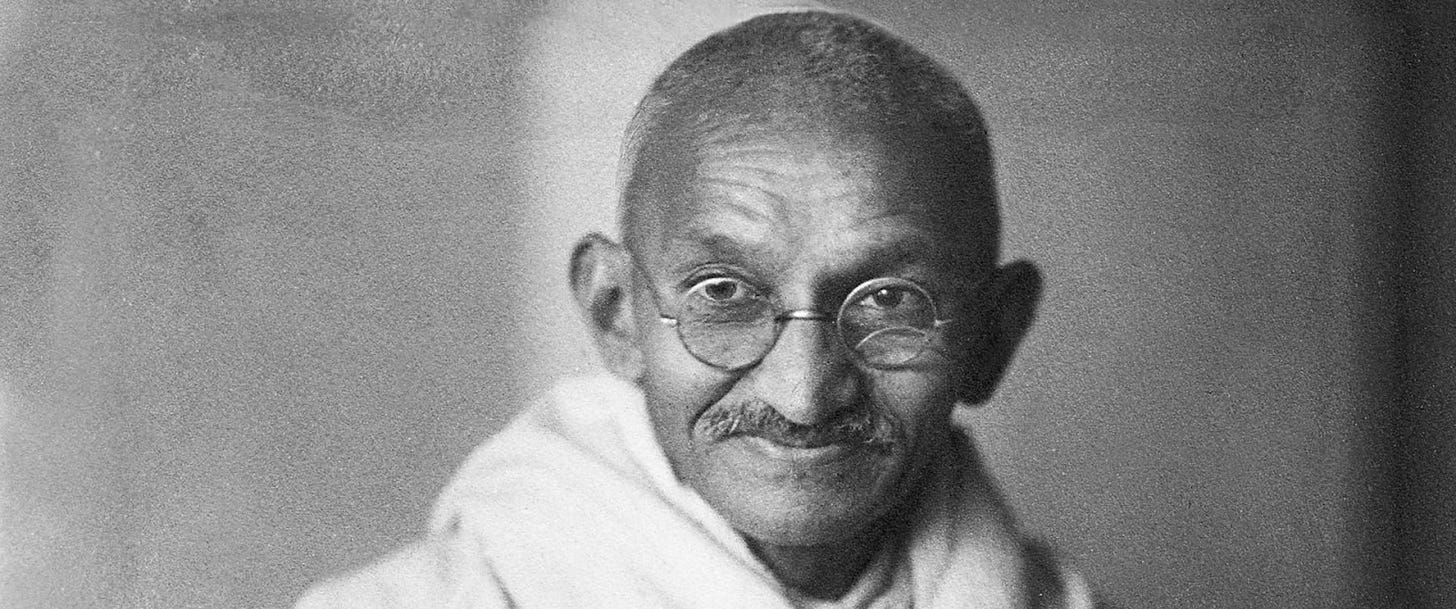Mahatma Gandhi, the leader of the campaign for Indian independence from Britain, was asked what he thought of western civilization. “It would be a good idea,” he answered.
Alexis de Tocqueville, the French aristocrat who toured the United States in the 1830s, summarized his impressions in Democracy in America. If he returned today and were asked what he thought of democracy in America, he might respond in Gandhian fashion.
Democracy is easy to like but hard to love. People praise it without really considering what they’re praising. They confuse democracy with the results of America’s democratic politics. They look at Americans’ prosperity and personal freedom and they credit democracy.
They’re not wrong, but their analysis is incomplete. Democracy isn’t a set of results. It’s a process. It’s the operating system of our political software. Most people pay little attention to their OS until it malfunctions.
The German philosopher Immanuel Kant devised a rule for evaluating actions. His “categorical imperative” asserted that any proposed standard should be thought of as applying universally, not just to a particular group at a particular time. If it still sounded like a good idea, it might well be one.
John Rawls advanced a similar concept. The American philosopher spoke of a “veil of ignorance” behind which reformers should stand. They should judge a proposed reform without knowing whether it would apply to them or not. Again, if it still sounded good, it might be.
Democracy should be evaluated in like manner. A true democrat embraces the idea of majority rule without worrying about what the majority rules. A democrat declares in favor of democracy regardless of which parties and candidates come out ahead.
Just as no one meets Kant’s categorical standard all the time, and people are tempted to peer through Rawls’s veil, true democrats are hard to find. It would be surprising if they weren’t. Political scientists might appreciate process, but people want results.
Americans have been ambivalent about the democratic process. At the dawn of the age of American democracy, Andrew Jackson’s supporters, who would soon call themselves Democrats, rejected the legitimacy of the 1824 election – the most democratic until then – because their hero lost to John Quincy Adams. Southern Democrats rejected the democratic 1860 election of Abraham Lincoln, to the point of rejecting the Union.
Lately Republicans have been the more skeptical party. Donald Trump rejected the results of the 2020 election. His Republican party seconded his rejection and renominated him in 2024. American voters endorsed the rejection by returning Trump to the White House.
Whether Republicans persist in the Trumpian vein – taking the position that elections are legitimate only if they deliver the desired result – remains to be seen. At the moment, their democratic credentials are suspect.
Some Republicans wouldn’t dispute that. Like other people, they want what they want. Few are so bold as to proclaim that if democracy elects Democrats, then democracy has to go. Instead they say, like Trump, that the elections were rigged. Where they can, they preemptively rig the elections themselves by gerrymandering and other means to tilt the playing field their way.
Democrats have done the same, given the opportunity. Historically they were the champion vote suppressors, keeping black people in the South, nearly all Republicans, from voting for a century after Reconstruction.
Can democracy survive, with so little love?
Winston Churchill’s backhanded compliment to democracy was that it was better than the alternatives. In an open contest, Americans would certainly choose democracy over the alternatives, chiefly oligarchy or dictatorship.
The problem is that the contest wouldn’t be open. Germans voted Hitler into office, only to discover they couldn’t vote him out of office. Vladimir Putin was voted into office, and he’s not going anywhere. In some countries dictators have arrived on horseback, but as often they’ve entered under the cloak of democracy.
Donald Trump recently told a group of House Republicans, “I’ve raised a lot of money for the next race that I assume I can’t use for myself, but I’m not 100 percent sure.” The Republicans chuckled.
Was he joking? Democrats hope so, and democrats even more.




I have just finished this morning the first six chapters of your latest book, “AMERICA FIRST Roosevelt us. Lindbergh in the Shadow of War,” H. W. Brands, Doubleday (2024). If any of your readers here, after reading your last 4 essays in 4 days have thirsted for more, I commend to them this new work of yours.
WHOAH PROFESSOR!!
"Historically they were the champion vote suppressors, keeping black people in the South, nearly all Republicans, from voting for a century after Reconstruction."
While yes this is true- this one-liner type of historical tidbit is always taken OUT of context by Rightwing apologists of the modern GOP "Democrats were the party of slavery and Lincoln freed the slaves" shallow social media posting with little actual context that since the Civil Rights Act, the parties have basically switched sides on vote suppression and rights for minorities.
I know you know this but that kind of one line can quickly be quoted out of context
"Historian Professor Brands said Democrats are the champion vote suppressors keeping black people in the South from voting"